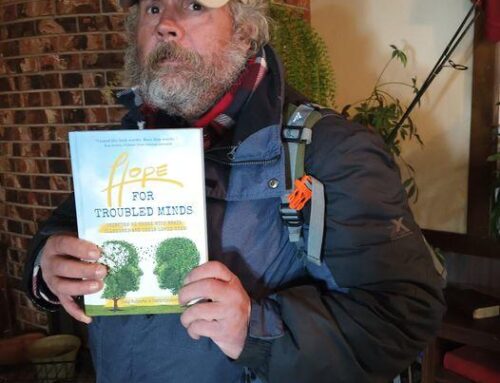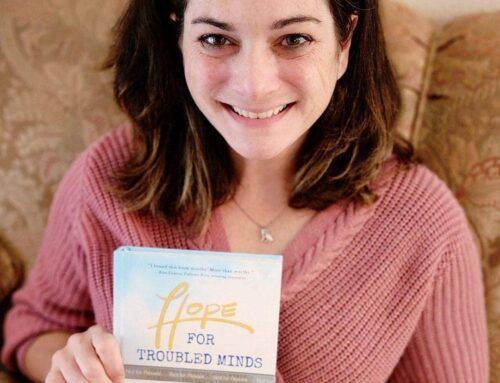I don’t follow much mass media, but at times it is impossible to escape. Accounts of the El Paso and Dayton shootings and the Los Angeles stabbings are prime examples. What could possibly motivate persons to such violent extremes? Political leaders, pundits, and partisans toss around various theories. Access to guns? Video games? Mental illness?
As one with a mental illness who now serves as a Faith & Mental Health Advocate, the issue is much more than political posturing, it is passionately personal. True, I have witnessed first-hand aggressive behavior stemming from mental illness. Yet, the vast majority of harm is self-directed, not violence against others. Fear-based stigma does no one any good and does many much harm.
The Treatment Advocacy Center, one of the leading organizations promoting better mental health care and safety has written in “Risk Factors for Violence in Serious Mental Illness”, five points:
- Most individuals with serious mental illness are not dangerous.
- Most acts of violence are committed by individuals who are not mentally ill.
- Individuals with serious mental illness are victimized by violent acts more often than they commit violent acts.
- Being a young male or a substance abuser (alcohol or drugs) is a greater risk factor for violent behavior than being mentally ill.
- No evidence suggests that people with serious mental illness receiving effective treatment are more dangerous than individuals in the general population.
The article concludes:
“… a small number of individuals with serious mental illnesses [do] commit acts of violence. Individuals who are not being treated commit almost all of these acts; many of them also abusing alcohol or drugs.”
Mental illness is a medical condition, not a crime.
Yet, whenever there is a mass killing, many target mental illness as the culprit and those with troubled minds become more afraid to seek help.
Faith communities are uniquely blessed with a ministry that is broad and expansive. We reach people of all ages and ethnicities, genders, life circumstances and conditions. At our best, we not only preach with our words, but show in our actions God’s love, peace, and justice. Given the breadth and depth of this ministry, people with mental illness will no doubt be drawn in. Speaking for myself, the body of Christ has given me a sanctuary for my seething spirit. I have found healing within the fellowship of believers even as some turned away in fear.
How can we reject fear that leads to hatred and embrace faith that leads to hope for all?
Discover more from Delight in Disorder
Subscribe to get the latest posts sent to your email.









As we’ve seen in the news in recent years, sending the police to death with a person in crisis is often a terrible idea. We’ve seen a therapist shot because a police officer panicked. We’ve seen autistic kids shot because their hand gestures were scary.
I’m sure that the operator meant well, but sending people with guns to “protect themselves and the public” from a person who isn’t violent or dangerous isn’t as good an idea as we might wish. A friend of mine who used to work as an aide to people with developmental disabilities said that you should never call the police for such a person unless you want them shot.
Anyway, … There are a couple of issues going on, here. The police response to mental illness (and a lot of other things) is rooted in a far-too-quick reflex to shoot.
Our societal response to mental illness is horrific. According to Hollywood, mental illness is either a cute quirk (“Monk” comes to mind, and numerous examples of moping, weird, etc. characters) or phenomenally dangerous (“Psycho,” “American “Psycho,” etc.). It’s okay to make jokes about “forgetting your meds” or the like whenever someone acts in an undesirable fashion.
People know some of the terms, but we know very little about mental health, really. Especially since we’re a convenient political target. We’re thrown under the bus by the gun lobby, which is selling hard the narrative that our country doesn’t have too many guns, we just have untreated mental health problems. (Not that the people in the gun lobby’s pocket want to help expand mental health coverage, of course.) But that might be a can of worms you don’t want to open, here. Still, I think it’s relevant. We’re specifically in the sights — so to speak — of an interest group that wants to avoid scrutiny.
Ken, you clearly a passionate edge to your compassion. As someone who has a mental illness and often needs advocacy, I’m glad you are on my side.